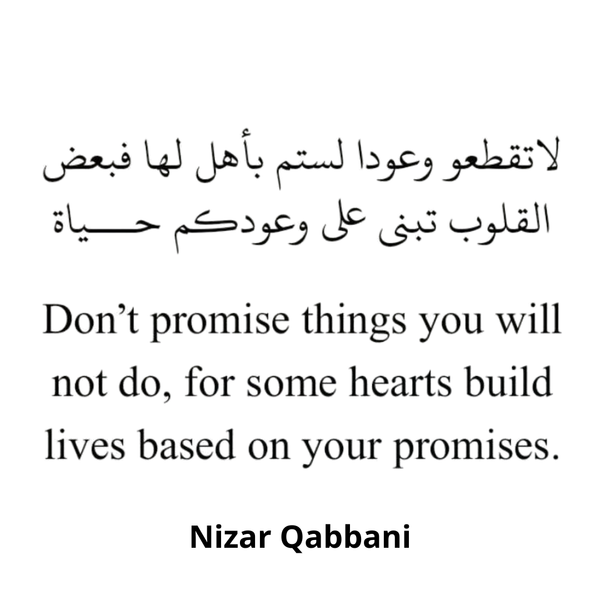Forget Being a Genius - Be a Triple Threat Instead

When I first read Scott Adams’s (an amazing cartoonist and the inventor of a long running work place satirical cartoon series called Dilbert) idea of skill stacking (or “talent stacking”)—that you can become extraordinary not by being the absolute best at one thing, but by combining several things you’re good at- it felt like a breath of fresh air.
Here’s how his essay begins:
If you want an average successful life, it doesn’t take much planning. Just stay out of trouble, go to school, and apply for jobs you might like.
But if you want something extraordinary, you have two paths:
Become the best at one specific thing.
2. Become very good (top 25%) at two or more things.
Writing was always something I loved, something I would do even if no one read it.
Then I added two more skills: public speaking and selling (i.e. persuasion, marketing).
Over time, that triad became my core.
That combination allowed me to do things that few other people can do - not because I mastered each skill to perfection, but because few people combine them well.
In what follows, I’ll
- Tell my version of that journey
- Show how you can reverse engineer your own stack, and
- Explain why now (even in the age of AI) this approach gives you a durable advantage.
Where I Was When I Needed This Idea
By age 32, I had already been COO of a business doing nearly a million in annual revenue. Before I left that company I had started Liquid London, a D2C e-liquid company in the UK. But I felt very lost.
I had just ended a long-term relationship. I was in my early 30s and asking: “What now?” The business was functional, but I wasn’t sure it felt meaningful. I had enough money, well maybe enough to feel comfortable, but I didn’t have creative freedom, and I didn’t feel “born” to run e-liquids forever.
One of my deepest fears had always been not having enough money. Growing up in a first-generation immigrant family, I saw lack and struggle early. Security felt like oxygen: without it, I couldn’t breathe. So for many years, ambition was tethered to survival.
But those fears also pushed me into the zone of overwork and confusion. If I could discover a path that wasn’t “all in on one thing,” but still led me to freedom and meaning, I would take it.
Then I stumbled upon Adams’s essay. I reread it and realized it resonated with everything I was trying to avoid: the trap of thinking I had to be “the best in the world at writing” or “the best public speaker.”
That felt like a scale of ambition I couldn’t hold yet. But aiming for very good - that I could.
So I decided: let me pick three skills I care about, commit to them over time, and see where that leads.
Let’s return to Adam’s short essay:
The first strategy (of being the best) is difficult to the point of near impossibility.
Few people will ever play in the NBA or make a platinum album. I don’t recommend anyone even try.
The second strategy is fairly easy.
Everyone has at least a few areas in which they could be in the top 25% with some effort. In my case, I can draw better than most people, but I’m hardly an artist. And I’m not any funnier than the average standup comedian who never makes it big, but I’m funnier than most people.
The magic is that few people can draw well and write jokes. It’s the combination of the two that makes what I do so rare.
And when you add in my business background, suddenly I had a topic that few cartoonists could hope to understand without living it.
My Three Skills (and Why I Chose Them)
Over time, the three skills that anchored me were:
- Writing
- Public Speaking
- Selling / Persuasion
(Plus, as a supporting fourth, I flirted with technology e.g. trying to learn to code, but I dropped it when I realized it was more friction than joy.)
Here’s how each one unfolded for me, and how they reinforced one another.
Writing
Writing was always natural to me. But natural doesn’t mean good, and good doesn’t mean useful. It meant a base I could build on.
- I practiced daily by journaling, blogging, rewriting copy, sending emails, launching newsletters.
- I experimented with styles: narratives, essays, marketing copy, scripts, social media posts.
- Over time, I developed a voice - not polished, but distinctive - that bridges personal journey and ideas.
Writing is foundational because it forces clarity. If you can’t express something clearly in writing, you probably don’t fully understand it.
By writing, you test your thinking. And because writing has many applications (articles, emails, scripts, social media, books), it becomes a versatile lever.
This post is a testament to the practise of this skill.
Public Speaking
Public speaking was harder for me than writing. Speaking in front of 2,000 people, hosting webinars, doing Facebook Lives, presenting on stage - all of that made my blood run hot. But I practiced.
- My first big speaking moment was at a career fair with 2,000 students over 10 years ago. I prepared intensely.
- I volunteered for any opportunity: conference talks, classrooms, webinars, podcasts.
- I recorded, reviewed, refined. I studied great talkers. I rewrote my speeches.
- Over time, the fear receded and the skill improved.
- My Youtube channel is a way for me to keep this skills current.
Public speaking is high-leverage. It’s visible. It commands attention. It allows you to expand reach rapidly. Many people fear public speaking more than they fear financial collapse. If you master it, you own a very rare kind of attention muscle.
In fact, communication (verbal + written) continues to be among the most sought-after soft skills by employers. LinkedIn’s 2020 Workplace Learning Report found that 57% of respondents cited communication as a top skill employers look for.
Selling / Persuasion
“Selling” here doesn’t mean pushing a shady pitch - it means persuading, converting, connecting value to people’s desire. It means marketing, offer creation, funnel optimization, negotiating, understanding psychology.
- I launched dozens of offers, many of which failed.
- I tested pricing, bundles, copy, messaging, channels.
- I studied behavioral psychology, copywriting, persuasion frameworks.
- I integrated selling into my projects instead of treating it as an afterthought.
In many modern frameworks, selling (or persuasion) is considered a high-income skill. For instance, “solution-based selling” is one of the rising skills of 2025 per analysis of LinkedIn’s data.
Also, in job markets, “sales / business development” often ranks among the most in-demand skills across sectors.
The success of my business has been built of my ability to sell.
Why This Triad Works
- Overlap & reinforcement: Writing supports speaking (script preparation, clarity), speaking supports selling (you can pitch live, persuade groups), selling supports writing (you get to test copy, offers).
- Multiplicative value: Each skill amplifies the others. Being good at two or three isn’t just sum - it's exponential in some cases.
- Differentiation: Many people are competent writers. Some are good speakers. Fewer combine both with selling. That combination becomes your niche.
- Resilience in change: In volatile economies, automation, AI - writing, speaking, persuasion are human-centered skills that are harder to fully automate.
Adams himself points out that few cartoonists could hope to also understand business, risk, writing, humor, etc. The magic was in combining “pretty goods” until no one else had your mix.
His essay continues:
I always advise young people to become good public speakers (top 25%). Anyone can do it with practice. If you add that talent to any other, suddenly you’re the boss of the people who have only one skill.
Or get a degree in business on top of your engineering degree, law degree, medical degree, science degree, or whatever.
Suddenly you’re in charge, or maybe you’re starting your own company using your combined knowledge.
Capitalism rewards things that are both rare and valuable. You make yourself rare by combining two or more “pretty goods” until no one else has your mix.
At least one of the skills in your mixture should involve communication, either written or verbal. And it could be as simple as learning how to sell more effectively than 75% of the world.
That’s one.
Now add to that whatever your passion is, and you have two, because that’s the thing you’ll easily put enough energy into to reach the top 25%.
If you have an aptitude for a third skill, perhaps business or public speaking, develop that too.
3. Why the “Become Best at One Thing” Myth Is Dangerous
I want to stress: the first path (becoming best at one thing) is seductive but deceptive for almost everyone.
- The odds are extremely low. Think of the very few who become world-class in sports, music, chess, or art. The competition is global, starting early, and often uses resources (time, money, mentors) you may not have.
- You get locked in. If your one thing fails, you have no fallback.
- It’s brittle. If the domain changes (algorithm shifts, new technology arises), you lose your peg.
In contrast, combining multiple strong skills gives you optionality. If one field becomes less viable, the others may compensate.
Also, in How to Fail at Almost Everything and Still Win Big, Adams argues that having multiple mediocre skills has more practical value than one extremely specialized excellence.
A useful metaphor: you’re not aiming to be the tallest giraffe; you want to be a giraffe that can also swim decently and climb trees. That hybrid gives you survival advantage in varied terrain.
NOTE: I personally have never abandoned the idea of becoming a world class writer, but my other skills are helping to create a vehicle where I can sit on a Tuesday morning and write this post. Instead of being at the beck and call of a boss.
4. What the Data & Trends Say About Skill Combinations
Skill Complementarity
A 2022 working paper “What is the Price of a Skill? The Value of Complementarity” argues that the value of a skill depends heavily on how well it complements other skills you already have. In other words, you don’t just pick high-value skills in isolation — you pick ones that multiply.
For example, AI skills are particularly valuable because they complement many other skills; having AI + domain knowledge yields more value than AI alone.
Thus, your second or third skill should ideally synergize, not just exist in isolation.
Skills in Demand & Future Outlook
- The Future of Jobs Report 2025 (World Economic Forum) states that 39% of core skills workers currently have are expected to change by 2030. Employers increasingly value adaptability, learning agility, and cross-domain skills.
- According to Forbes’s reporting on LinkedIn, the skills on the rise in 2025 include: Public Speaking, Solution-Based Selling, Customer Engagement & Support, Stakeholder Management, LLM (large language model) development among others. Forbes
- Coursera lists “public speaking and communication,” “copywriting / content strategy,” “digital marketing,” and “sales / persuasion” among high-income or high-leverage skills.
- A skill-co-occurrence analysis of UK job adverts (65 million adverts from 2016 to 2022) shows that job ads increasingly demand combinations of skills (i.e., skills spanning multiple clusters rather than siloed ones).
These trends all point to the same core: breadth + combination is becoming more valuable than narrow depth alone.
AI & Automation: Threat or Opportunity?
One worry many people have: “If AI becomes better than me at writing, speaking, marketing, what’s left?” The interesting nuance is that AI tends to complement human skills rather than fully replace them — especially when it comes to persuasion, emotional nuance, strategy, and originality.
A recent study “Complement or substitute? How AI increases the demand for human skills” finds that AI-complementary human skills (like teamwork, digital literacy, resilience) are gaining wage premiums.
In short: mastering human-centered, relational, creative skills remains a durable hedge even in a rapidly automated world.
I’ll end exactly as Adams did by asking:
What will your 3 skills be?




